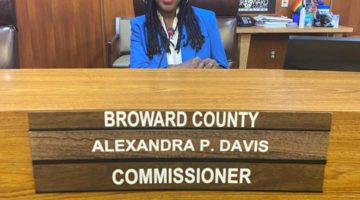PORT-AU-PRINCE — In a country where the news is typically bad, if not catastrophic, many people in Haiti look at the past year under a musician-turned-president with guarded surprise.
Yes, parliament and President Michel Martelly were in a standoff that hobbled government much of the past 12 months. Yes, less than a quarter of the population has a formal job. And, yes, cholera and many other problems still haunt the country.
Yet six of the most visible displaced-persons camps that sprang up after the 2010 earthquake have been cleared and several of the sites are back to being public plazas; renovations are far along at the international airport; a sprinkling of new hotels and shops have begun to rise across the capital’s otherwise ruined landscape; and, in a country where free education is rare, the government, for the first time, has covered school tuition for one million children.
It’s hardly a Golden Age. But it’s not bad either for a leader who had never held political office and was best known for often raunchy musical performances before he took office a year ago. The achievements have come with a parliament so dominated by the party of the man Martelly defeated in his run for president that lawmakers stonewalled his attempts to appoint a prime minister and Cabinet for three-quarters of the year.
“Things with Martelly are working for the most part,” said Yrinen Jean-Baptiste, a 34-year-old mother of two children who voted for the musician and says that, so far, she would be willing do so again. “I hope he can do more.”
Asked to grade himself on a 1-10 scale, the president, who isn’t known for modesty, gives himself high marks.
“I would give myself an eight, eight-and-half, a nine, because everything I did I did without a government,” Martelly said in an interview with The Associated Press. “Everything I did, I did at a time when I had so many problems, when so many people tried to stop me. Everything I did, I did whether the money was there or not.”
Still known to many by his stage name “Sweet Micky,” Martelly said governing was easier than he had thought and he has no regrets from the first year.
But it’s clear there were some major blunders.
Police ignored a law granting legislative immunity by arresting a lawmaker who had escaped from jail. The justice minister took the blame and resigned but the episode infuriated parliament and lawmakers became bent on thwarting him at every turn, opening an investigation into Martelly’s eligibility for office.
Instead of dispelling rumors that he was a citizen of another country, which would have barred him from office, he let the allegations fester. It took him several months to put the matter to rest. When he did, he held aloft eight old passports in a performer-like flourish.
Martelly also has struggled to disband a group of military veterans who have tried to hold him to his campaign pledge of restoring the army. They had been training before he took office and his victory emboldened them and they have paraded throughout the capital and countryside, toting side-arms and sporting military uniforms, despite government orders for them to stop. Their paramilitary-like presence has embarrassed not just the government but also the United Nations peacekeeping mission.
Martelly also suffered for the lack of a strong political party. Only three members of his party hold seats in the 99-member Chamber of Deputies and none in the 30-member Senate, though he’s found allies in both chambers.
His political base remains tiny and he counts a tight-knit circle of longtime friends as his advisers, many of them fellow alumni of an elite Catholic high school and many of them foreign to politics. Even then, infighting has been a hallmark of the administration.
Photo: Haitian President Michel Martelly












No Comment